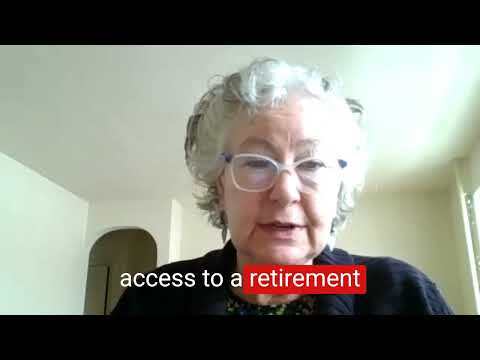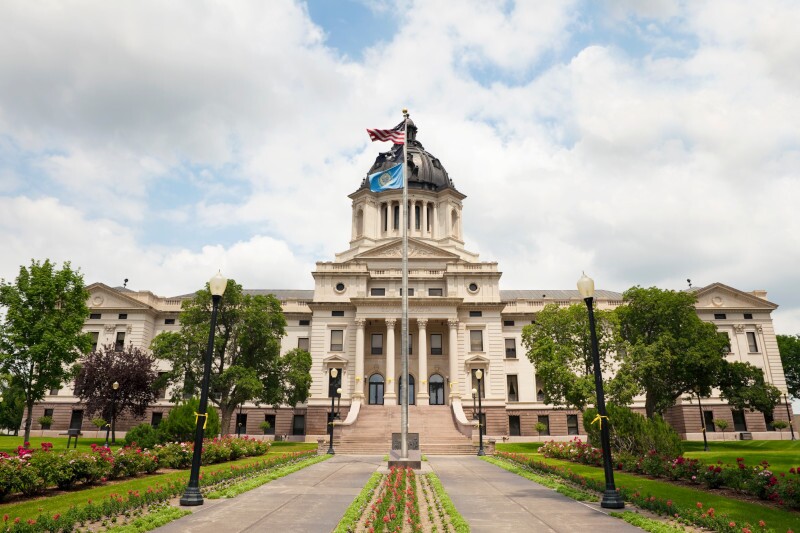AARP Hearing Center
Session Ends without Major Tax and Budget Agreements, Despite $9.5 Billion Surplus
Minnesota’s 2022 Legislative Session ended on May 23 with much-unfinished business, including a historic tax agreement reached by the House and Senate conference committee that was not enacted into law. AARP is deeply disappointed that lawmakers did not finish their work and have urged them to come back to the table in a special session to hammer out the remaining budget bills. Urge your lawmakers and Governor Walz to come together in a Special Session.
Without a special session, historic tax relief that included repeal of the state’s tax on Social Security benefits and property tax relief for homeowners and renters alike means seniors will not see more money in their pockets. Additionally, the lack of an agreement on Health and Human Services (HHS) spending will exacerbate the long-term care workforce shortage, threatening seniors’ health and safety.
Fortunately, some bills did overcome the gridlock and were passed into law by Governor Walz. AARP successfully worked to expand access to high-speed internet, addressed food insecurity for seniors, hero pay for front-line workers, and taxpayer accountability provisions in nursing homes. Below is an overview of laws enacted, a summary of the tax agreement, and what is at stake without the passage of a Health and Human Services bill.
NEW LAWS ENACTED
Broadband Access (High-Speed Internet)
The pandemic has exposed how older Minnesotans without access to affordable high-speed internet are at a disadvantage in combatting isolation, scheduling vaccine appointments, accessing telehealth services, and much more. AARP advocated for more general fund money to expand access to affordable, reliable high-speed internet service through Minnesota’s Border-to-Border grant program, and for a pilot program that increased the state’s match in hard to serve areas of the state. This program expands access in unserved and underserved areas of the state, especially in rural areas.
The final agreement passed and signed into law includes $50 million ($25 million in 2023 and 2024) for the Border-to-Border grant program and increases matching award amounts.
Lawmakers Increase Eligibility for the Supplemental Nutrition Assistance Program (SNAP)
AARP pushed lawmakers to expand the SNAP program eligibility to address food insecurity in the 50+ population. We testified, wrote letters, and urged our members to talk with their lawmakers. The final agreement increases the gross income limit for SNAP benefits from 165 percent of the Federal Poverty Level ($21,252) to 200 percent ($25,760), a small but significant increase for low-income adults who are food insecure. More older adults will now qualify for food benefits and help ensure they have sufficient funds to buy groceries.
The Supplemental Nutrition Assistance Program (SNAP) is the nation’s largest anti-hunger program. It reduces food insecurity and poverty and is linked to improved health outcomes, including reduced hospitalizations among low-income older adults.
Hero Pay
Lawmakers agreed to fund $500 million for hero pay. AARP supported this measure to recognize the many nursing home workers and assisted living staff who saved lives by continuing to show up to their jobs even as their workplaces became the epicenters of infections. It’s estimated that 667,000 workers on the front line can expect a $750 bonus for their work during the pandemic. It covers workers in all industries where workers were at risk of contracting COVID-19.
Nursing Home Accountability
AARP supported the CHOW (Change of Ownership) provision to ensure more accountability to taxpayers of nursing home payments and improve resident care. Studies revealed that changes in ownership resulted in poorer quality outcomes for residents. This provision provides more transparency and allows the Department of Health to conduct more audits of new owners.
AGREEMENT REACHED BY TAX CONFEREES BUT DID NOT PASS
Tax Bill
The historic tax cuts included a full repeal of state Social Security taxes, reductions in income taxes, and significant property tax relief for homeowners and renters alike, allowing more older Minnesotan residents to age in their homes and communities. While AARP advocated for more targeted Social Security relief, the final agreement represents a win-win for seniors.
Full Social Security Exemption:
A full exemption costs $1.6 Billion over the next three years. According to Senate research, more than half of the Social Security tax cuts would go to households with incomes above $134,000 – that’s the top 20 percent of the income distribution in Minnesota.
Property Tax Relief:
- Renters’ Credit expansion: This credit will now be part of the income tax filing process, meaning seniors will likely receive larger refunds, find it easier to qualify, and would no longer need to count their non-taxable Social Security as income when determining if they qualify for the Renters’ Credit.
- Homeowners Property Tax Credit (Known as Circuit Breakers) ($72 m in FY24-25): Increases maximum refund and credit amounts for folks with incomes $21.8K-$77K.
- Expansion of the Senior Citizens’ Property Tax Deferral: Tax deferral programs directly address the problems cash-strapped seniors face with significant home equity to pay current property taxes.
- Additional Targeted Relief: Provides reductions to homeowners who have experienced a spike in their property taxes of 10% from 12% and increases the maximum refund from $1,000 to $2,000.
LACK OF AGREEMENT ON HHS BILL THREATENS HEALTH AND SAFETY OF SENIORS
AARP pushed lawmakers to increase wages and benefits for long-term care workers in all settings to address the dire workforce exacerbated by the pandemic. At the end of the session, no agreement was reached on how much of the $1 billion should be allocated between workers in nursing homes, assisted living facilities, and those providing home care. Without an influx of new money, nursing homes could close and recruitment and retention efforts in the field will be hampered. The Paid Family Medical Leave bill was rejected by the Senate in the Jobs Conference Committee before the session ended.
AARP urges our members to contact lawmakers to come back and finish their work. Urge your lawmakers and Governor Walz to come together in a Special Session.
Volunteers play a key role in our mission to lead positive social change. If you are interested in creating a positive change in any of the above issues, join our Advocacy Team.








































































